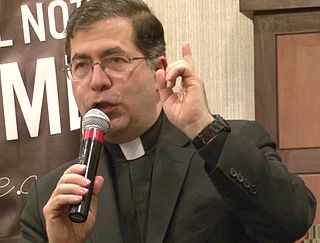A Quote by Michael Hastings
The frightening aspect is that it's part of a larger effort from the Pentagon to tear down the wall between public affairs and propaganda, and essentially say there is no difference between information operations, public affairs and psychological operations. They have a new name for that too, it's called Information Engagement. What I hope people take away from this is that it's a window into a larger phenomenon. After a decade of Iraq war you have this Pentagon-military apparatus run amok using resources that they shouldn't be to try to manipulate U.S. public opinion.
Quote Topics
Affairs
After
Apparatus
Aspect
Away
Between
Decade
Difference
Down
Effort
Engagement
Essentially
Frightening
Hope
Information
Iraq
Iraq War
Larger
Manipulate
Military
Name
New
No Difference
Operations
Opinion
Part
Pentagon
People
Phenomenon
Propaganda
Psychological
Public
Public Affairs
Public Opinion
Resources
Run
Say
Take
Tear
Too
Try
Using
Using Resources
Wall
War
Window
Related Quotes
But the frightening aspect is that it's part of a larger effort from the Pentagon to tear down the wall between public affairs and propaganda, and essentially say there is no difference between information operations, public affairs and psychological operations. It's all one and the same. They have a new name for that too, it's called Information Engagement.
The U.S. public is depoliticised, poorly informed on foreign affairs... and strongly patriotic in the face of a struggle with another Hitler. Even though the public is normally averse to war, even with modest propaganda efforts... the public can be quickly transformed into enthusiastic supporters of war.
Our problem was that in the American approach to Soviet affairs policy has oscillated between people who take an essentially psychological approach and people who take an essentially theological approach, and the two really meet. The psychologists try to "understand" the Soviet Union. And try to ease its alleged fears. The theologians say the Soviets are evil.
OK, so $1 trillion is what it costs to run the federal government for one year. So this money's going to run through September of 2016. Half of the trillion dollars goes to defense spending and the Pentagon. The other half goes to domestic spending - everything from prisons to parks. So there's also about 74 billion in there that goes to the military operations that we have ongoing in Iraq and Afghanistan and Syria.
There are some militarists who say: ‘We are not interested in politics but only in the profession of arms.’ It is vital that these simple-minded militarists be made to realize the relationship that exists between politics and military affairs. Military action is a method used to attain a political goal. While military affairs and political affairs are not identical, it is impossible to isolate one from the other.
When the United States first went into Afghanistan in 2001, it devastated the Taliban and Al Qaeda in a matter of weeks using only a few hundred C.I.A. and Special Operations personnel, backed by American air power. Later, when the United States transitioned to conventional Pentagon stability operations, this success was reversed.
I realize that my opinion is my opinion, not everybody has to believe it and I never tried to shove anything down anyone's throat, but I was willing to take that to the trenches if you know what I mean. I took that opinion to the wall, often in public, often had to... I often had to fight in public with the very same people who I was trying to convince to play my records!






























